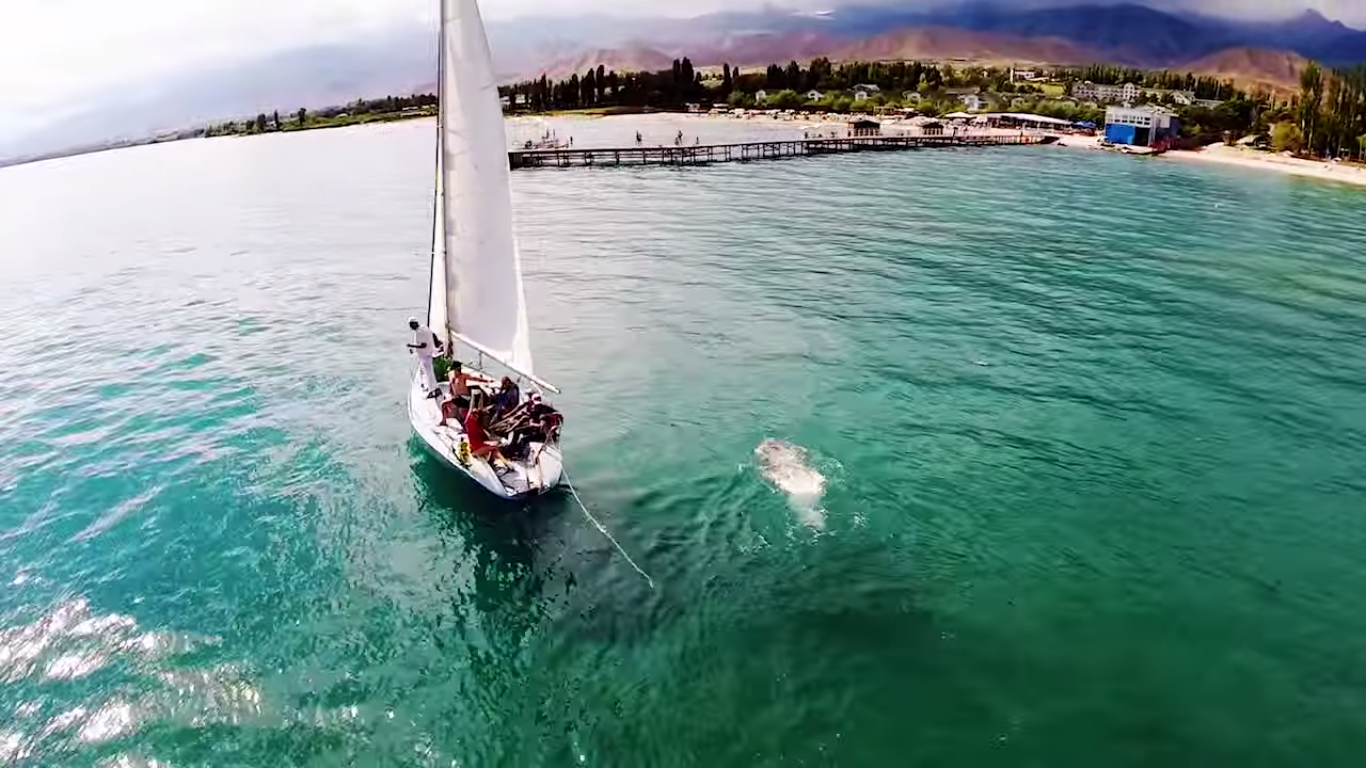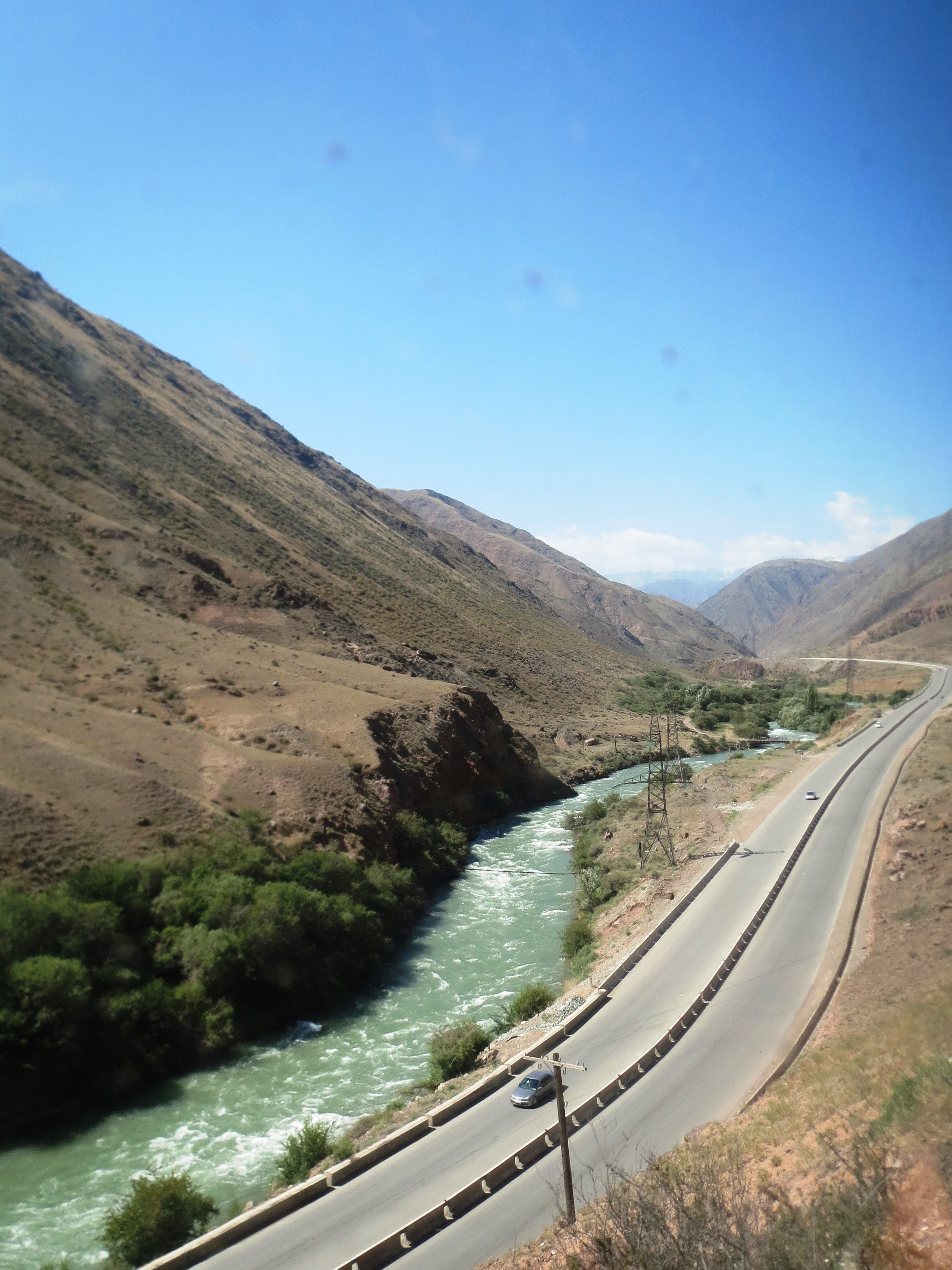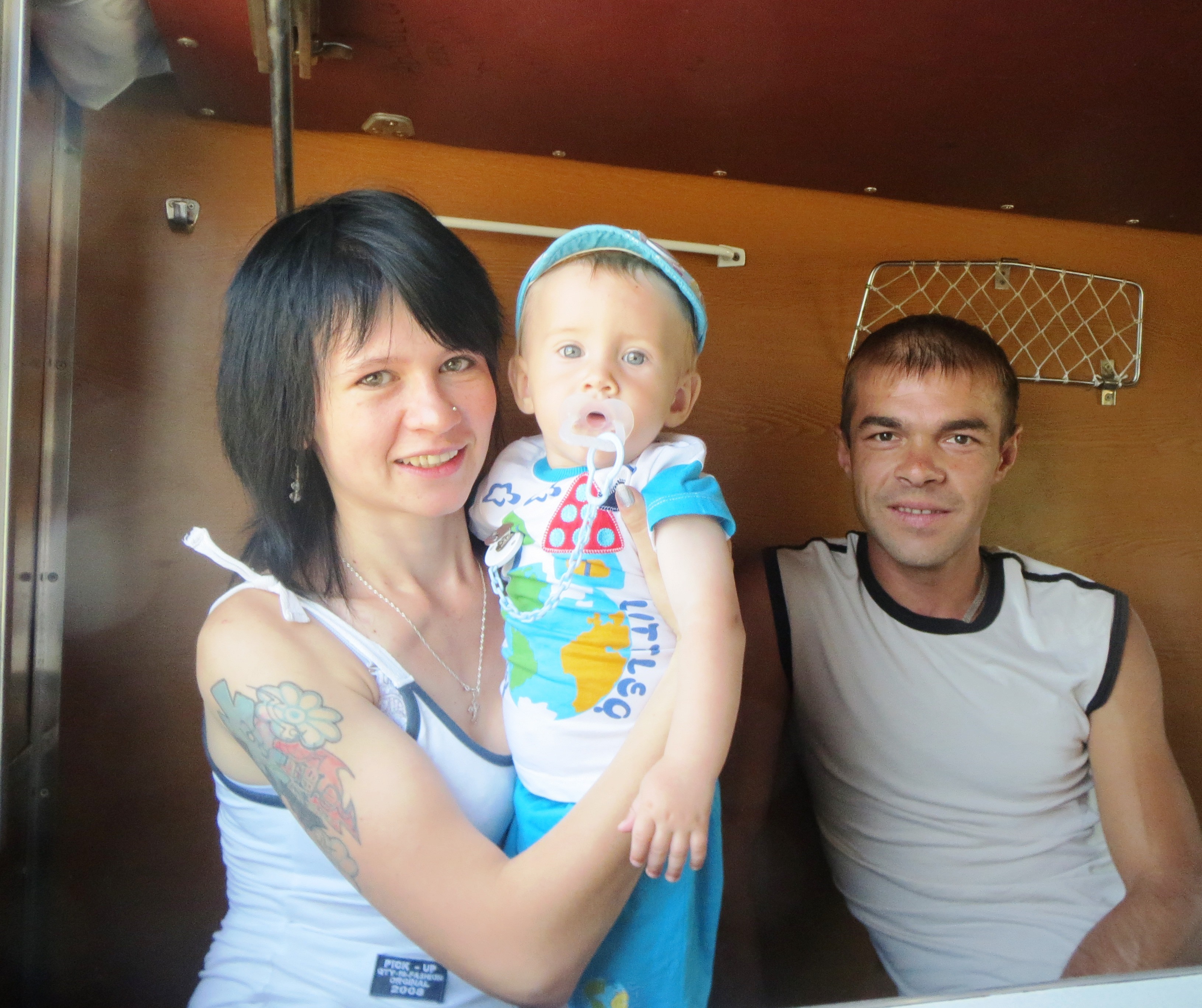
Issyk-Kul during the tourist season. Screenshot from video uploaded onto YouTube by Alexey Nikitin.
Once a resting place for Central Asia's restless nomads, Lake Issyk-Kul — arguably the closest thing Central Asia has to a sea — is now a popular destination for tourists from the former Soviet Union and beyond. But before taking in the beauty of the sapphire waters and the surrounding snow-speckled switchbacks, visitors to the “Eye of the Tian-Shan” must decide how to get there.
The five hours long train ride from the Kyrgyz capital Bishkek to Balykchy on the Western edge of the lake has become less popular since the Soviet Union collapsed. More people have cars now — the journey is shorter by road — and some view the train as potentially dangerous, both in terms of the passengers (who tend to be people without cars) and the traders that roam the train's aisles selling snacks, trinkets and other miscellaneous items.
But the train still has its admirers. They view the trip as an opportunity to play cards, read and enjoy a slightly longer glimpse of the Boom Gorge located halfway between the lake and the city, a moment of natural beauty interrupting otherwise steppe-like scenery.

The Boom Gorgeas seen from the Bishkek-Balykchy train. Photo by Zukhra Iakupbaeva.
The train to Balykchy departs everyday at 6.40 am. Not only is the ride not as dangerous as some make out but it is also a great chance to see a slice of Kyrgyz society departing the stress of the city for the fun of the lakeside, from families with children and dogs to elderly folks spending a chunk of their modest state pensions on this summer pilgrimage.
Inside, the train's facilities are basic: a hard bed-cum-seat and a table shared with three other passengers. The conductor is not only a point of information about the train, but also a makeshift doctor who can distribute medicine from a special bag when needed. Because the train has no restaurant, the passengers take their own sustenance on board with them, often the traditional post-Soviet combination of sunflower seeds and beer.
When asked why passengers chose this way to the lake, most emphasized the price — just over a dollar compared to nearly $10 for a seat in a shared taxi — and the spaciousness.

The “slow train” to Issyk-Kul is a social experience. Photo by Zukhra Iakupbaeva.
Facebook user Mara Bugatti Ekin Uulu, praises the natural democracy of the Bishkek-Balykchy train:
Klassno) ya v 2011 godu s'ezdil s druzyami. Eto tema. Zahotel lejish, zahotel sobral rebyat I igru mojno zamutit). Da, vot 5 chasov dolgo ((( no nado otmetit v hotel kak raz i zaselites)))) obychno s obeda) vsem horoshego otdyha) hot’ odin raz poprobuite)
It is awesome) I went with friends in 2011. Really cool. You can lie on one of the beds if you want or play games with other passengers. Of course, 5 hours might seem long, but we were bang on time for hotel check-in at lunchtime )))) I wish you all a good rest at Issyk-Kul. You should try the train at least once)
Another user of the service, Sapar Ibraev, commented on the views:
Нууу, да ты самое интересное пропустила))) Путь назад намного красивее – закат, ночные огни города, и потом приезжаешь в прохладный вечерний Бишкек)) И в поезде после 8 вечера такая тишина всегда, все спят…
The way back, Balykchy-Bishkek, is much more beautiful: sunset, city street lights, and then you arrive in the cool night in Bishkek)) There is silence after 8 p.m. on the train, everyone is sleeping…
The train makes several stops. This young family got on at a village just before the gorge and were riding the train for the first time. Yulia (left) said “it was quite picturesque to see the road through the gorge we travel along most days from the height of mountains.”

Yulia and family live in a village between Bishkek and Issyk-Kul. Photo by Zukhra Iakupbaeva.
The conductor of the train, Zeine, 56, has been working for the Kyrgyz Temir Zholu state rail department for 33 years. Asked to share interesting anecdotes from her time on the trains, she recalled the story of the pregnant Kyrgyzstani, who travelled to Russia expressly to receive a state allowance of 286,621 roubles ($5,512) for women giving birth to their third baby. The woman managed to ensure she gave birth to her child in the bathroom of the train while safely on Russian territory before swapping the train for a local hospital. However, the woman did not know that the Russian state allowance for third children does not apply to citizens of foreign countries.
Monkeys, writing in a post entitled “How to go to Issyk-Kul Cheaply and Angrily” on the Namba.kg blogging platform, calculated that his recent day out at Issyk-Kul cost him less than 300 soms ($6) encompassing the train ride to Balykchy and back, a mooch in one of the town's dubious second-hand clothes stores, a spot of Ashlan-Fu for lunch, and access to one of the city's nicer beaches.
But post-industrial Balykchy itself is far from the most fashionable or aesthetically attractive settlement on Lake Issyk-Kul (see Ben Rich's definitive profile, Balykchy: Town on the Edge in episode 19 of Bishkek-based tourist magazine The Spektator for more desolate detail) so lake-goers arriving on the train may want to then take a bus or taxi to somewhere nicer. The town does serve up some great smoked fish, however.
The Bishkek-Balykchy train returns from Balykchy every day at 5 p.m.

The Bishkek-Balykchy train returns to Bishkek every day at 5 pm. Zeine, the woman in the navy blue uniform, has been working for Kyrgyzstan's state rail company for more than three decades. Photo by Zukhra Iukupbaeva.






